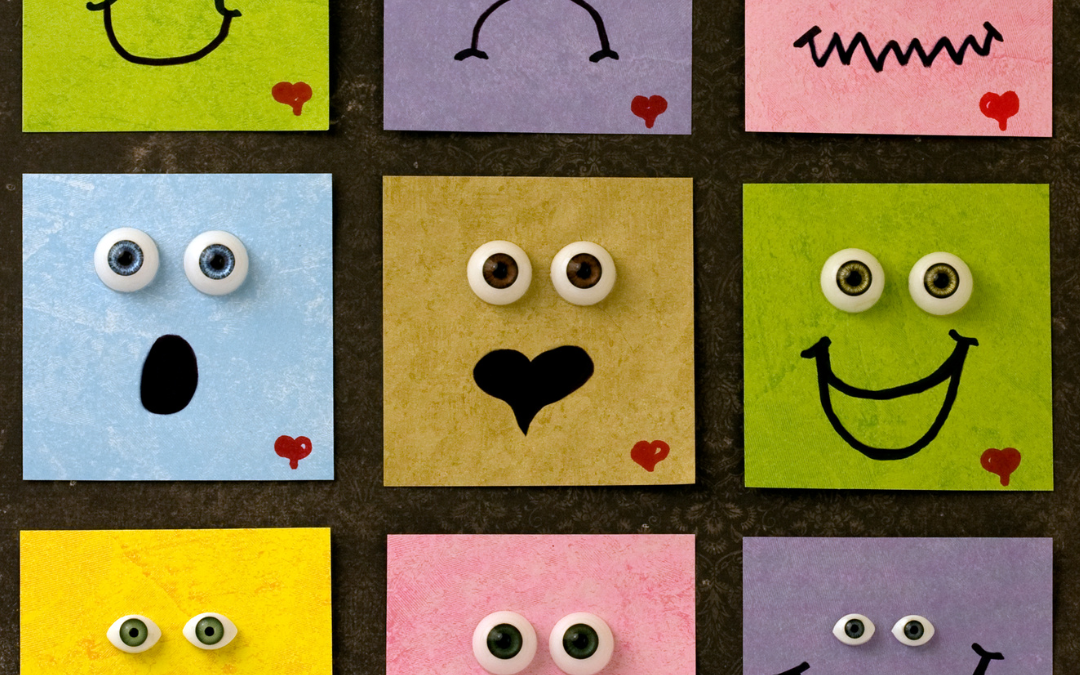by Kathi Szabo
Throughout my years of personal development, emotions always seem to have a way of finding themselves in the theory of living a better life.
Control your emotions.
You have moving toward and moving away emotions, a theory of Tony Robbins.
Feel your emotions in the moment.
All sorts of guidance to living a better life by somehow managing your emotions.
But have you ever looked at emotions as an observer? Seeing them through the lens of a scientist. Noticing the cause and effect, but not trying to change them.
And really, what are these things called emotions?
The other day, in the Explore Laugh Play group, our activity was watching cartoons. I chose to watch Care Bears, a cartoon where each bear is a particular emotion. Then there was a movie from a few years ago, I think it was called Inside Out. It was a children’s movie, all about our internal feelings. Our emotions.
So, emotions are how we feel about things that happen in our lives.
But how do we decide to feel one way or another?
Why do some things make us feel happy and other things make us feel sad, and other things may make us angry? And why do they not have the same effect on everyone? We all experience emotions differently. Why is that?
An Internal Feedback System
After much thought and enlightenment from numerous books and seminars, I’ve come to realize our emotions are simply our internal feedback system. What are they giving us feedback on? Good question.
I believe it’s feedback on our values. On what is important to us. What we believe to be important.
When we feel happy, that is our internal feedback system letting us know that the current situation is something we have placed a high value on. Because things we value, are important to us. They make us happy.
When we get angry, (which I used to tell my children to avoid, but boy how wrong that was), it is again feedback that whatever just happened is not aligned with our values. In fact, what makes us angry is usually in complete contradiction to our values.
However, I’ve learned more recently, that trying to avoid our anger doesn’t support us. In fact, it hurts us. It doesn’t allow us to truly be our authentic selves. When we avoid anger, we also avoid acknowledging what we value. Again, what is most important to us.
When we observe and listen to the feedback our emotions provide for us, and we continue to focus on our values, that is when we are in the present moment, being exactly who we are meant to be.
Let Emotions Guide, Not Control
Utilizing this guidance system though doesn’t mean allowing it to take full control. That could result in allowing our amygdala to take over, letting ourselves go into a Fight, Flight, or Freeze response. We know when we engage the sympathetic nervous system, we are not in our most powerful state. We are in survival mode, which can save us from danger, but it rarely, if ever, allows us to grow and become more of who we are meant to be.
When we can allow our emotions to surface, and we can observe them without allowing them to control our actions, we can gain a better understanding of our values and our belief system.
So the next time you feel angry, sad, excited, or scared, stop and observe. What is causing this emotion? How is aligned with my values? What values surface with this emotion, either in alignment or out of alignment. Allow yourself to feel, without becoming the emotion. We are not our emotions, they are just our guidance system.


Recent Comments